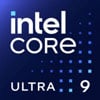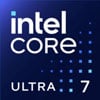
Intel Core i9-13900H Benchmark, Test and specs
Last updated:
The Intel Core i9-13900H was released in Q1/2023 and has 14 cores. The processor can process 20 threads simultaneously and uses a mainboard with the socket BGA 1744. In the Geekbench 5 benchmark, the Intel Core i9-13900H achieved a result of 1,919 points (single-core) or 14,632 points (multi-core).
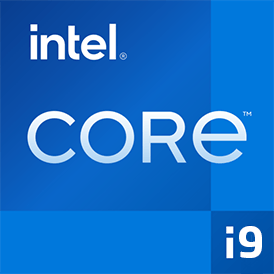
| Name: | Intel Core i9-13900H |
|---|---|
| Family: | Intel Core i9 (78) |
| CPU group: | Intel Core i 13000H (26) |
| Architecture: | Raptor Lake H |
| Segment: | Mobile |
| Generation: | 13 |
| Predecessor: | Intel Core i9-12900H |
| Successor: | -- |
CPU Cores and Base Frequency
The Intel Core i9-13900H has 14 cores. The clock frequency of the Intel Core i9-13900H is 2.60 GHz (5.40 GHz). An initial performance assessment can be made using the number of CPU cores.
| CPU Cores / Threads: | 14 / 20 |
|---|---|
| Core architecture: | hybrid (big.LITTLE) |
| A-Core: | 6x Raptor Cove |
| B-Core: | 8x Gracemont |
| Hyperthreading / SMT: | Yes |
|---|---|
| Overclocking: | No |
| A-Core Frequency: | 2.60 GHz (5.40 GHz) |
| B-Core Frequency: | 1.90 GHz (4.10 GHz) |
Internal Graphics
The Intel Core i9-13900H has an integrated graphics that the system can use to efficiently play back videos. The Intel Core i9-13900H has the Intel Iris Xe Graphics 96 (Alder Lake) installed, which has 96 streaming multiprocessors (768 shaders).
| GPU name: | Intel Iris Xe Graphics 96 (Alder Lake) |
|---|---|
| GPU frequency: | 0.40 GHz |
| GPU (Turbo): | 1.50 GHz |
| Compute units: | 96 |
| Shader: | 768 |
| Hardware Raytracing: | No |
| Release date: | Q1/2022 |
| Max. displays: | 4 |
|---|---|
| Generation: | 13 |
| Direct X: | 12.1 |
| Technology: | 10 nm |
| Max. GPU Memory: | 32 GB |
| Frame Generation: | No |
Hardware codec support
Processors with integrated graphics can process video codecs faster. Support for modern codecs can significantly increase system efficiency during video playback.
| h265 / HEVC (8 bit): | Decode / Encode |
|---|---|
| h265 / HEVC (10 bit): | Decode / Encode |
| h264: | Decode / Encode |
| VP8: | Decode |
| VP9: | Decode / Encode |
| AV1: | Decode |
|---|---|
| AVC: | Decode / Encode |
| VC-1: | Decode |
| JPEG: | Decode / Encode |
Memory & PCIeThe Intel Core i9-13900H supports a maximum of 96 GB memory. Depending on the mainboard, the processor can use a maximum of 2 (Dual Channel) memory channels. This results in a maximum bandwidth of the main memory of 102.4 GB/s. |
|
| Memory type: | Memory bandwidth: |
|---|---|
| LPDDR5-6400 LPDDR4X-4266 DDR5-5200 DDR4-3200 | 102.4 GB/s 68.2 GB/s 83.2 GB/s 51.2 GB/s |
| Max. Memory: | 96 GB |
| Memory channels: | 2 (Dual Channel) |
| ECC: | No |
| PCIe: | 5.0 x 20 |
| PCIe Bandwidth: | 78.8 GB/s |
Thermal ManagementThe Intel Core i9-13900H has a TDP of 45 W. Based on the TDP, the system manufacturer can and must adapt the cooling solution to the processor. |
|
|---|---|
| TDP (PL1 / PBP): | 45 W |
| TDP (PL2): | 115 W |
| TDP up: | -- |
| TDP down: | 35 W |
| Tjunction max.: | 100 °C |
Technical details
Modern production reduces the waste heat of a processor and increases its efficiency. The Intel Core i9-13900H is made in 10 nm and has 24.00 MB cache.
| Technology: | 10 nm |
|---|---|
| Chip design: | Monolithic |
| Socket: | BGA 1744 |
| L2-Cache: | -- |
| L3-Cache: | 24.00 MB |
| AES-NI: | Yes |
| Operating systems: | Windows 10, Windows 11, Linux |
| Virtualization: | VT-x, VT-x EPT, VT-d |
|---|---|
| Instruction set (ISA): | x86-64 (64 bit) |
| ISA extensions: | SSE4.1, SSE4.2, AVX2, AVX2+ |
| Release date: | Q1/2023 |
| Release price: | 700 $ |
| Part Number: | -- |
| Documents: | Technical data sheet |
Rate this processor
Benchmark results

The benchmark results for the Intel Core i9-13900H have been carefully checked by us. We only publish benchmark results that have been created by us or that have been submitted by a visitor and then checked by a team member. All results are based on and fullfill our benchmark guidelines.
Screenshots:
Screenshots:
Cinebench 2024 (Single-Core)
The Cinebench 2024 benchmark is based on the Redshift rendering engine, which is also used in Maxon's 3D program Cinema 4D. The benchmark runs are each 10 minutes long to test whether the processor is limited by its heat generation.

|
AMD Ryzen 9 7900
12C 24T @ 5.40 GHz |
||

|
Intel Core i5-13600K
14C 20T @ 5.10 GHz |
||

|
Intel Core i5-13600KF
14C 20T @ 5.10 GHz |
||
|
|
Intel Core i9-13900H
14C 20T @ 5.40 GHz |
||

|
AMD Ryzen Threadripper 7980X
64C 128T @ 5.10 GHz |
||

|
Intel Core i9-13900HK
14C 20T @ 5.40 GHz |
||

|
Intel Core i9-13900HX
24C 32T @ 5.40 GHz |
||
Cinebench 2024 (Multi-Core)
The Multi-Core test of the Cinebench 2024 benchmark uses all cpu cores to render using the Redshift rendering engine, which is also used in Maxons Cinema 4D. The benchmark run is 10 minutes long to test whether the processor is limited by its heat generation.

|
AMD Ryzen 7 8700G
8C 16T @ 5.10 GHz |
||

|
AMD Ryzen 7 PRO 8700G
8C 16T @ 5.10 GHz |
||

|
AMD Ryzen Threadripper 1950X
16C 32T @ 4.00 GHz |
||
|
|
Intel Core i9-13900H
14C 20T @ 5.40 GHz |
||

|
AMD Ryzen 9 3900
12C 24T @ 4.30 GHz |
||

|
Intel Core i9-10900KF
10C 20T @ 5.30 GHz |
||

|
Intel Core i9-10900K
10C 20T @ 5.30 GHz |
||
Cinebench R23 (Single-Core)
Cinebench R23 is the successor of Cinebench R20 and is also based on the Cinema 4 Suite. Cinema 4 is a worldwide used software to create 3D forms. The single-core test only uses one CPU core, the amount of cores or hyperthreading ability doesn't count.

|
AMD Ryzen 9 7900X
12C 24T @ 5.60 GHz |
||

|
Intel Core i5-13600K
14C 20T @ 5.10 GHz |
||

|
Intel Core i5-13600KF
14C 20T @ 5.10 GHz |
||
|
|
Intel Core i9-13900H
14C 20T @ 5.40 GHz |
||

|
AMD Ryzen 7 7700X
8C 16T @ 5.40 GHz |
||

|
Intel Core i9-12900KF
16C 24T @ 5.20 GHz |
||

|
Intel Core i9-12900K
16C 24T @ 5.20 GHz |
||
Cinebench R23 (Multi-Core)
Cinebench R23 is the successor of Cinebench R20 and is also based on the Cinema 4 Suite. Cinema 4 is a worldwide used software to create 3D forms. The multi-core test involves all CPU cores and taks a big advantage of hyperthreading.

|
AMD Ryzen 7 7700
8C 16T @ 4.60 GHz |
||

|
Intel Core i9-12900HX
16C 24T @ 2.30 GHz |
||

|
AMD Ryzen Threadripper 1950X
16C 32T @ 3.50 GHz |
||
|
|
Intel Core i9-13900H
14C 20T @ 5.00 GHz |
||

|
Intel Xeon E5-2699 v4
22C 44T @ 2.80 GHz |
||

|
Intel Core i5-13500HX
14C 20T @ 4.10 GHz |
||

|
AMD Ryzen 9 3900XT
12C 24T @ 4.60 GHz |
||
Geekbench 5, 64bit (Single-Core)
Geekbench 5 is a cross plattform benchmark that heavily uses the systems memory. A fast memory will push the result a lot. The single-core test only uses one CPU core, the amount of cores or hyperthreading ability doesn't count.

|
Intel Core i7-13800H
14C 20T @ 5.20 GHz |
||

|
Intel Core i5-14600
14C 20T @ 5.20 GHz |
||

|
Intel Core i9-13900HK
14C 20T @ 5.40 GHz |
||
|
|
Intel Core i9-13900H
14C 20T @ 5.40 GHz |
||

|
AMD Ryzen 7 PRO 8840U
8C 16T @ 5.10 GHz |
||

|
AMD Ryzen 7 8840U
8C 16T @ 5.10 GHz |
||
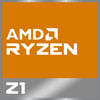
|
AMD Ryzen Z1 Extreme
8C 16T @ 5.10 GHz |
||
Geekbench 5, 64bit (Multi-Core)
Geekbench 5 is a cross plattform benchmark that heavily uses the systems memory. A fast memory will push the result a lot. The multi-core test involves all CPU cores and taks a big advantage of hyperthreading.

|
Intel Core i9-13900HK
14C 20T @ 5.00 GHz |
||

|
AMD EPYC 7451
24C 48T @ 2.90 GHz |
||

|
Intel Xeon Gold 6140
18C 36T @ 2.80 GHz |
||
|
|
Intel Core i9-13900H
14C 20T @ 5.00 GHz |
||

|
Intel Xeon Gold 6230
20C 40T @ 2.50 GHz |
||

|
Intel Xeon W-2275
14C 28T @ 4.00 GHz |
||

|
AMD Ryzen 9 5900X
12C 24T @ 4.50 GHz |
||
Geekbench 6 (Single-Core)
Geekbench 6 is a benchmark for modern computers, notebooks and smartphones. What is new is an optimized utilization of newer CPU architectures, e.g. based on the big.LITTLE concept and combining CPU cores of different sizes. The single-core benchmark only evaluates the performance of the fastest CPU core, the number of CPU cores in a processor is irrelevant here.

|
Intel Core i9-13900HK
14C 20T @ 5.40 GHz |
||

|
Intel Core i5-14600T
14C 20T @ 5.10 GHz |
||

|
Intel Core i9-13900T
24C 32T @ 5.30 GHz |
||
|
|
Intel Core i9-13900H
14C 20T @ 5.40 GHz |
||
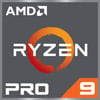
|
AMD Ryzen 9 PRO 8945HS
8C 16T @ 5.20 GHz |
||

|
AMD Ryzen 9 8945H
8C 16T @ 5.20 GHz |
||

|
AMD Ryzen 9 8945HS
8C 16T @ 5.20 GHz |
||
Geekbench 6 (Multi-Core)
Geekbench 6 is a benchmark for modern computers, notebooks and smartphones. What is new is an optimized utilization of newer CPU architectures, e.g. based on the big.LITTLE concept and combining CPU cores of different sizes. The multi-core benchmark evaluates the performance of all of the processor's CPU cores. Virtual thread improvements such as AMD SMT or Intel's Hyper-Threading have a positive impact on the benchmark result.

|
Intel Core i9-12950HX
16C 24T @ 2.30 GHz |
||

|
AMD EPYC 7742
64C 128T @ 2.80 GHz |
||

|
Intel Core i9-13905H
14C 20T @ 5.00 GHz |
||
|
|
Intel Core i9-13900H
14C 20T @ 5.00 GHz |
||

|
Intel Core i9-13900HK
14C 20T @ 5.00 GHz |
||

|
Intel Core i7-13800H
14C 20T @ 4.50 GHz |
||

|
AMD EPYC 7702P
64C 128T @ 2.50 GHz |
||
iGPU - FP32 Performance (Single-precision GFLOPS)
The theoretical computing performance of the internal graphics unit of the processor with simple accuracy (32 bit) in GFLOPS. GFLOPS indicates how many billion floating point operations the iGPU can perform per second.
|
|
HiSilicon Kirin 9000
ARM Mali-G78 MP24 @ 0.76 GHz |
||

|
Apple M1 (7-GPU)
Apple M1 (7 Core) @ 1.30 GHz |
||

|
Qualcomm Snapdragon 8 Gen 3
Qualcomm Adreno 750 @ 0.90 GHz |
||
|
|
Intel Core i9-13900H
Intel Iris Xe Graphics 96 (Alder Lake) @ 1.50 GHz |
||

|
Intel Core i7-1360P
Intel Iris Xe Graphics 96 (Alder Lake) @ 1.50 GHz |
||

|
Intel Core i7-1370P
Intel Iris Xe Graphics 96 (Alder Lake) @ 1.50 GHz |
||

|
Intel Core i7-13700H
Intel Iris Xe Graphics 96 (Alder Lake) @ 1.50 GHz |
||
Estimated results for PassMark CPU Mark
Some of the CPUs listed below have been benchmarked by CPU-monkey. However the majority of CPUs have not been tested and the results have been estimated by a CPU-monkey’s secret proprietary formula. As such they do not accurately reflect the actual Passmark CPU mark values and are not endorsed by PassMark Software Pty Ltd.

|
AMD Ryzen 7 8700G
8C 16T @ 4.70 GHz |
||

|
AMD Ryzen 7 PRO 8700G
8C 16T @ 4.70 GHz |
||

|
Intel Xeon W-3265M
24C 48T @ 3.60 GHz |
||
|
|
Intel Core i9-13900H
14C 20T @ 5.00 GHz |
||
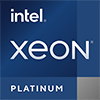
|
Intel Xeon Platinum 8268
24C 48T @ 3.40 GHz |
||

|
AMD Ryzen 9 PRO 3900
12C 24T @ 3.10 GHz |
||

|
Intel Core i7-13800HRE
14C 20T @ 4.00 GHz |
||
CPU performance per watt (efficiency)
Efficiency of the processor under full load in the Cinebench R23 (multi-core) benchmark. The benchmark result is divided by the average energy required (CPU package power in watts). The higher the value, the more efficient the CPU is under full load.

|
AMD Ryzen 5 7530U
8,346 CB R23 MC @ 38 W |
||

|
AMD Ryzen 7 8700G
18,040 CB R23 MC @ 83 W |
||

|
AMD Ryzen 7 PRO 8700G
18,040 CB R23 MC @ 83 W |
||
|
|
Intel Core i9-13900H
18,760 CB R23 MC @ 87 W |
||

|
AMD Ryzen 7 7700
19,540 CB R23 MC @ 92 W |
||

|
AMD Ryzen 5 PRO 8600G
14,067 CB R23 MC @ 68 W |
||

|
AMD Ryzen 5 8600G
14,067 CB R23 MC @ 68 W |
||
Benchmarks

Cinebench 2024 (SC)
272 entries
272 entries

Cinebench 2024 (MC)
271 entries
271 entries

Cinebench R23 (SC)
586 entries
586 entries

Cinebench R23 (MC)
565 entries
565 entries

Geekbench 5 (SC)
2,488 entries
2,488 entries

Geekbench 5 (MC)
2,461 entries
2,461 entries

Geekbench 6 (SC)
1,755 entries
1,755 entries

Geekbench 6 (MC)
1,703 entries
1,703 entries

FP32 SP (iGPU)
2,042 entries
2,042 entries

3DMark Timespy (iGPU)
516 entries
516 entries

PassMark CPU-Mark
2,392 entries
2,392 entries

CPU performance per watt (efficiency)
109 entries
109 entries
Description of the processor
The Intel Core i9-13900H is part of the 13th generation of Intels Core i9 family and comes from the mobile segment of the processor program. The Intel Core i9-13900H is based on the Raptor Lake H architecture and was launched by Intel in the first quarter of 2023. The processor is based on a monolithic chip design and is manufactured with a structure width of 10 nanometers. It has a 24.00 megabyte level 3 cache and is based on the BGA 1744 socket.A total of 14 processor cores work in the Intel Core i9-13900H, which are divided into 6 performance cores with the code name Raptor Cove and 8 efficiency cores with the code name Gracemont. The six performance cores clock at 2.60 gigahertz and can increase the clock speed to up to 5.40 gigahertz in turbo mode. The more economical efficiency cores clock slightly lower at 1.90 gigahertz and the maximum turbo clock of 4.10 gigahertz is also significantly lower than the clock of the performance cores. Hyperthreading technology is only supported by the 6 performance cores, which means that the Intel Core i9-13900H has a maximum of 20 computing threads available.
The Intel Iris Xe Graphics 96 from the Alder Lake architecture is integrated into the mobile processor as the internal graphics unit. This graphics unit has 96 execution units and 768 shader units, thereby achieving an FP32 computing power of 2230 GigaFLOPS. The graphics unit was installed for the first time in the first quarter of 2022, making it exactly 1 year older than the processor. However, it is also manufactured using the 10 nanometer process.
The Intel Core i9-13900H has 2 memory channels through which it can be operated with up to 64 gigabytes of RAM. The built-in graphics unit can reserve up to 32 gigabytes of this. Memory with automatic error correction (ECC memory) is not supported by the Intel Core i9-13900H.
Popular comparisons
back to index




